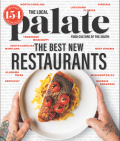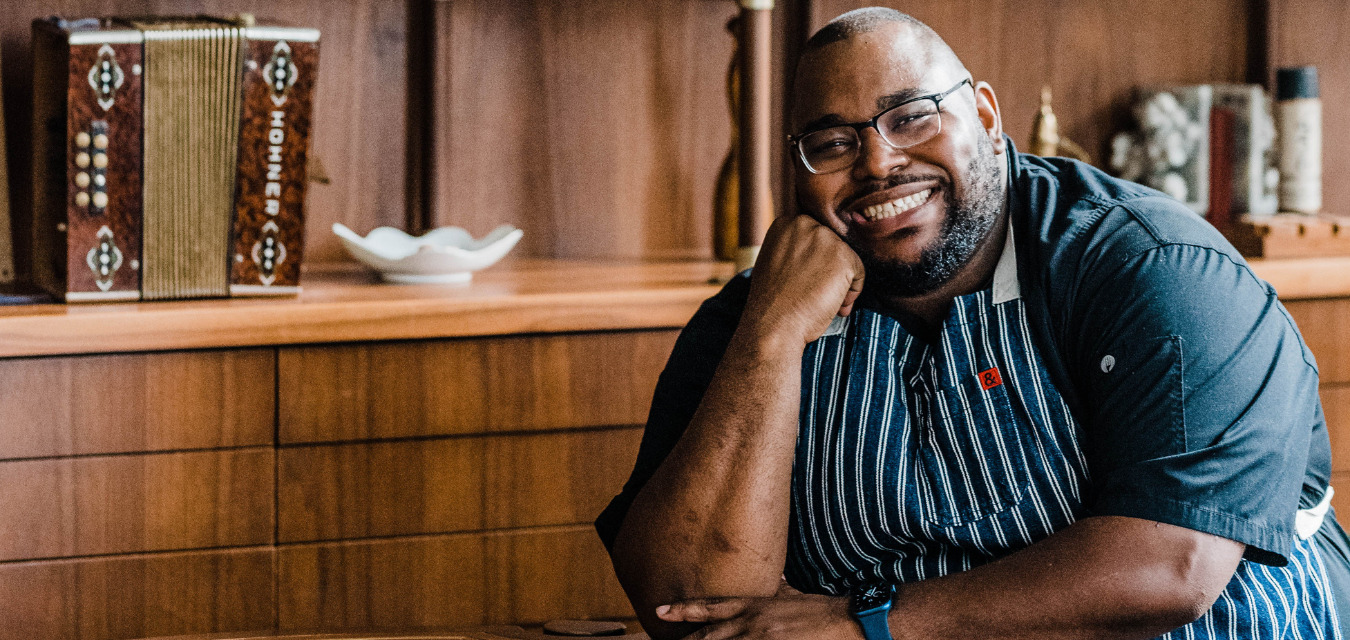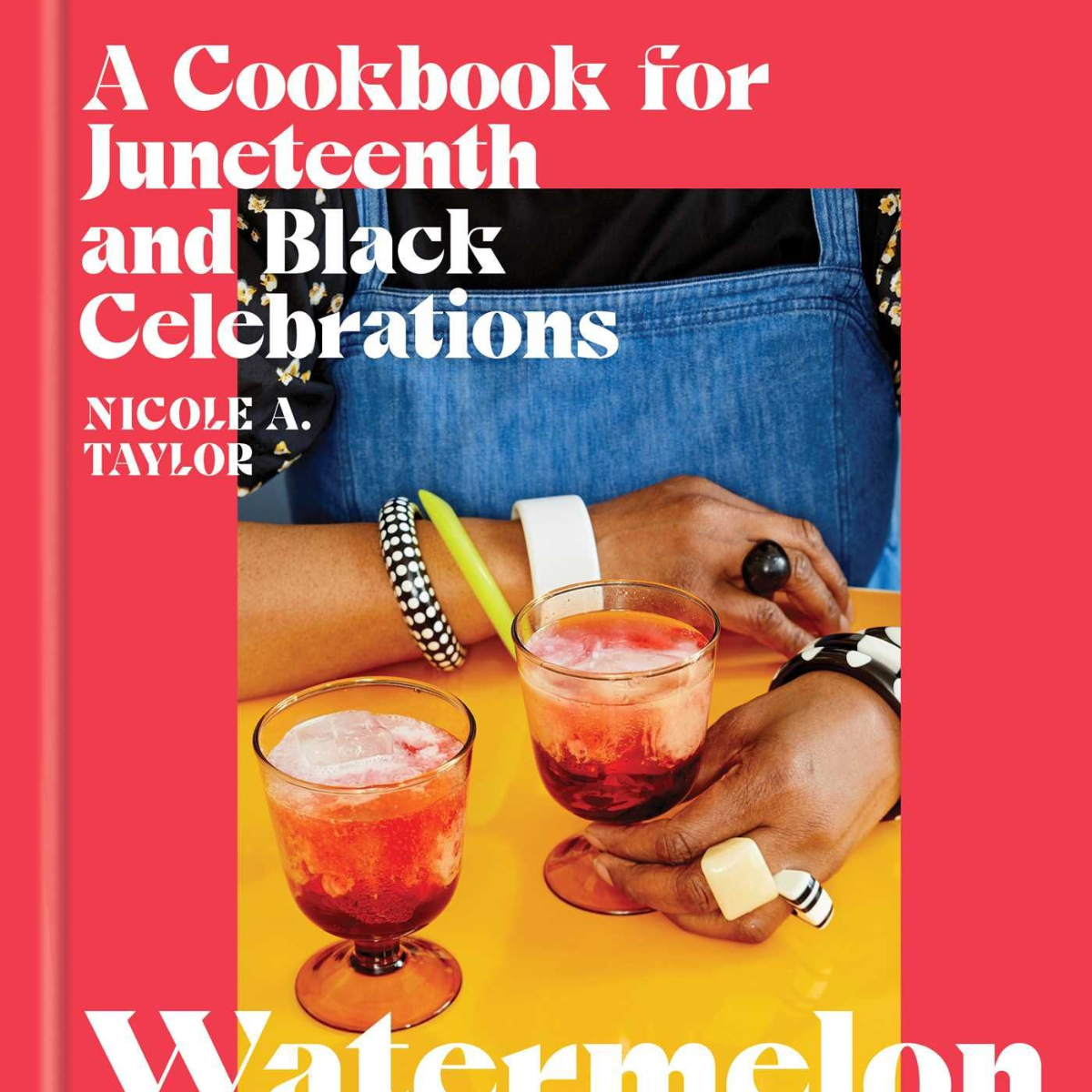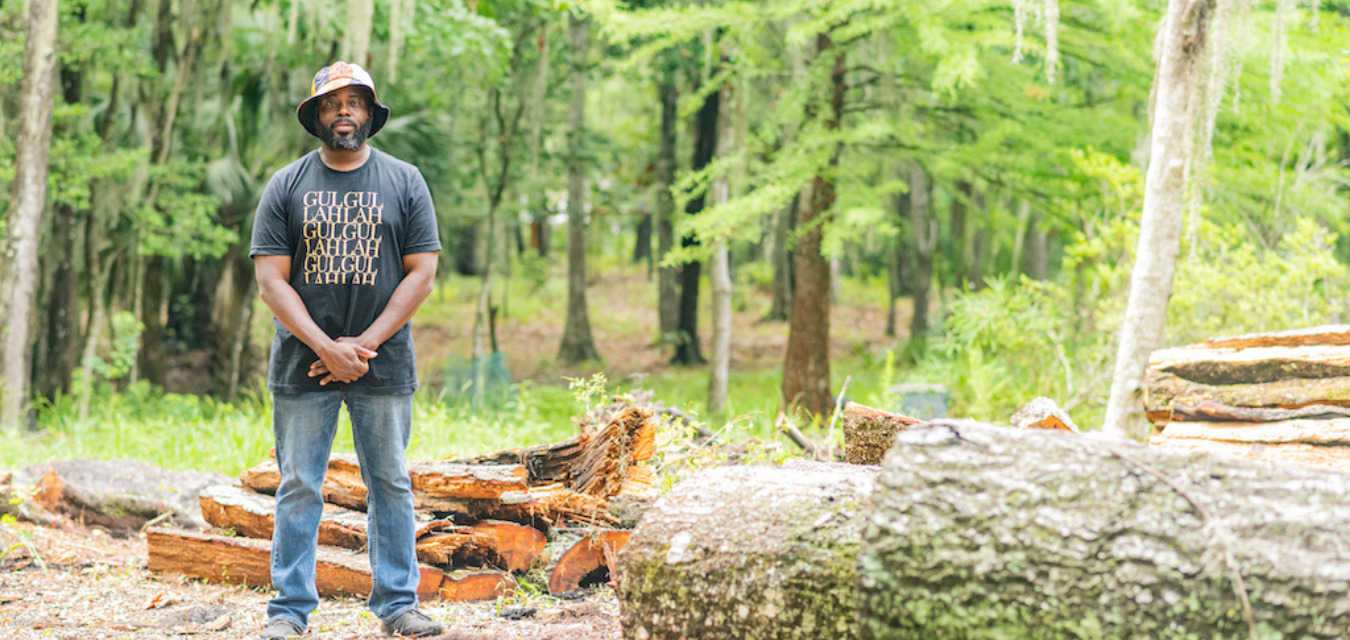Chef Bernard Bennett explains Okàn, the Bluffton restaurant paying homage to the transatlantic slave route
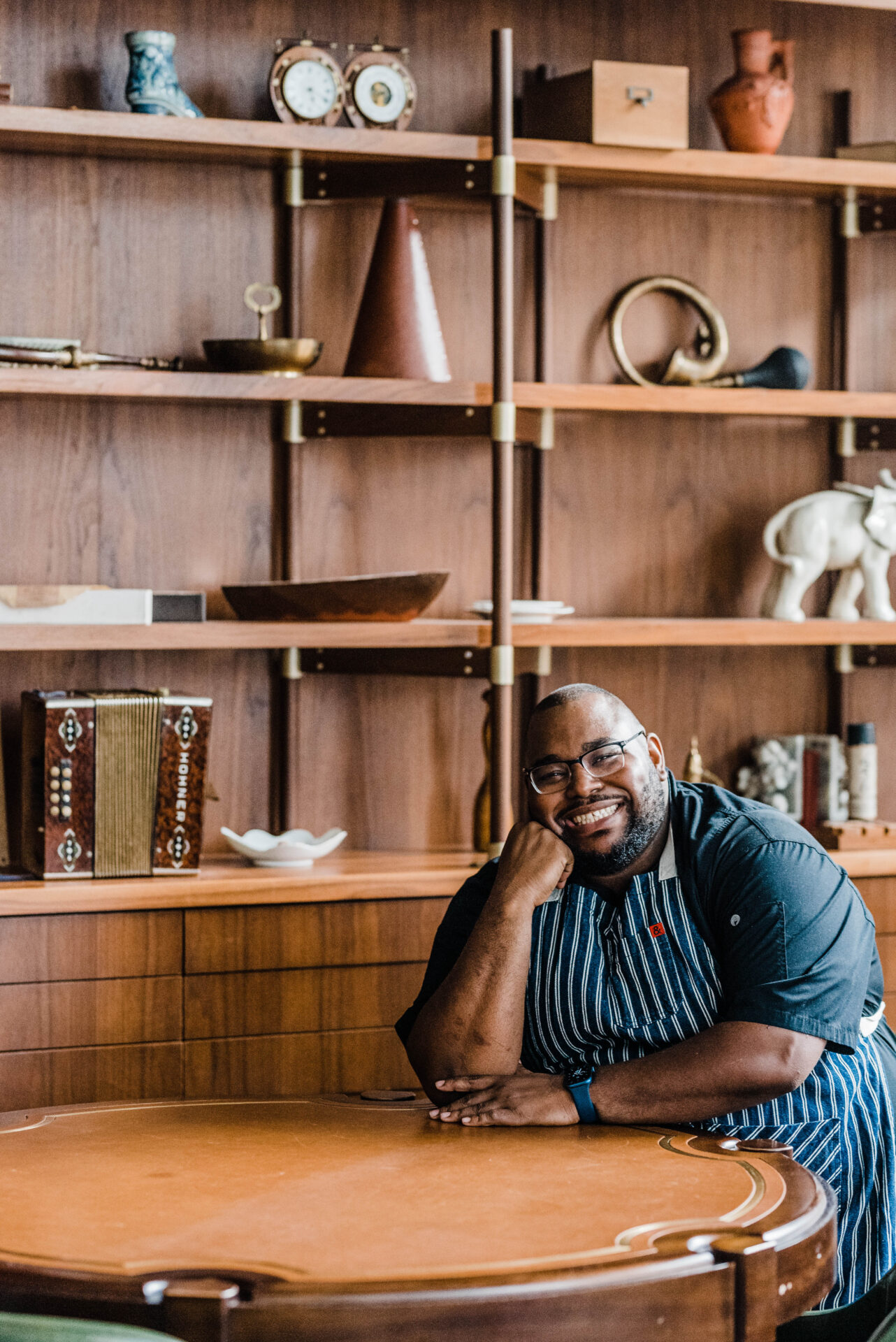
In our Road Trips issue, we explored the dining scene taking root in Bluffton, South Carolina, where chef Bernard Bennett of Okàn has partnered with a local developer to open a restaurant that adds layers of depth to the conversation. Bennett’s goal was to take a close look at the diaspora of the transatlantic slave trade—specifically how West Africa and other Caribbean stopping points on the trade routes influence the foods found in the Lowcountry today. The smart, casually elegant brick-and-mortar restaurant set in the heart of Old Town is opening the conversation and, most importantly, sharing Bennett’s soul-filling food. Here, we get to know Bennett’s story and learn more about his passion for expanding the story.
TLP: How did you originally get into cooking?
Bernard Bennett: I was born in Chicago, but I grew up in Michigan. I’ve been cooking all my life. My mom taught me and my brother how to cook very early on, and when I was probably 19 years old, she became sick and was bedridden. So, I just took over cooking duties for dinner. And whenever I would make something that she really loved, she’d have this big smile on her face. And that’s how I knew—I needed to receive that smile all the time. I went on to cook a wide range of cuisines. I worked in a few country clubs while I was in college, and then moved to Chicago and was a personal chef for four years. I worked at places like The Drinkingbird and Three Aces, which was like a punk rock bar that served upscale Italian food—you know, making our own pasta, all kinds of craziness. It was fantastic. Then I went on cook at Buck’s, doing chicken and biscuits, which is where I got to cook for Beyoncé. And, yeah—that was pretty cool.

TLP: At what point did you move into doing your own food?
Bernard Bennett: I was the executive chef of a place called the Promontory on the south side of Chicago. It was probably my proudest job because, until then, I hadn’t really worked around a bunch of people that looked like me where it was also upscale. It opened my mind to a more affluent African American experience. And it was just beautiful to be there. And then I got what I thought was my dream job, to be the executive chef of the Gage in downtown Chicago across from Millennium Park—I was just about to come on as chef and my first day on the job, the country shut down [due to Covid-19]. It was tough, really tough. And so I came down to South Carolina to quarantine with family.
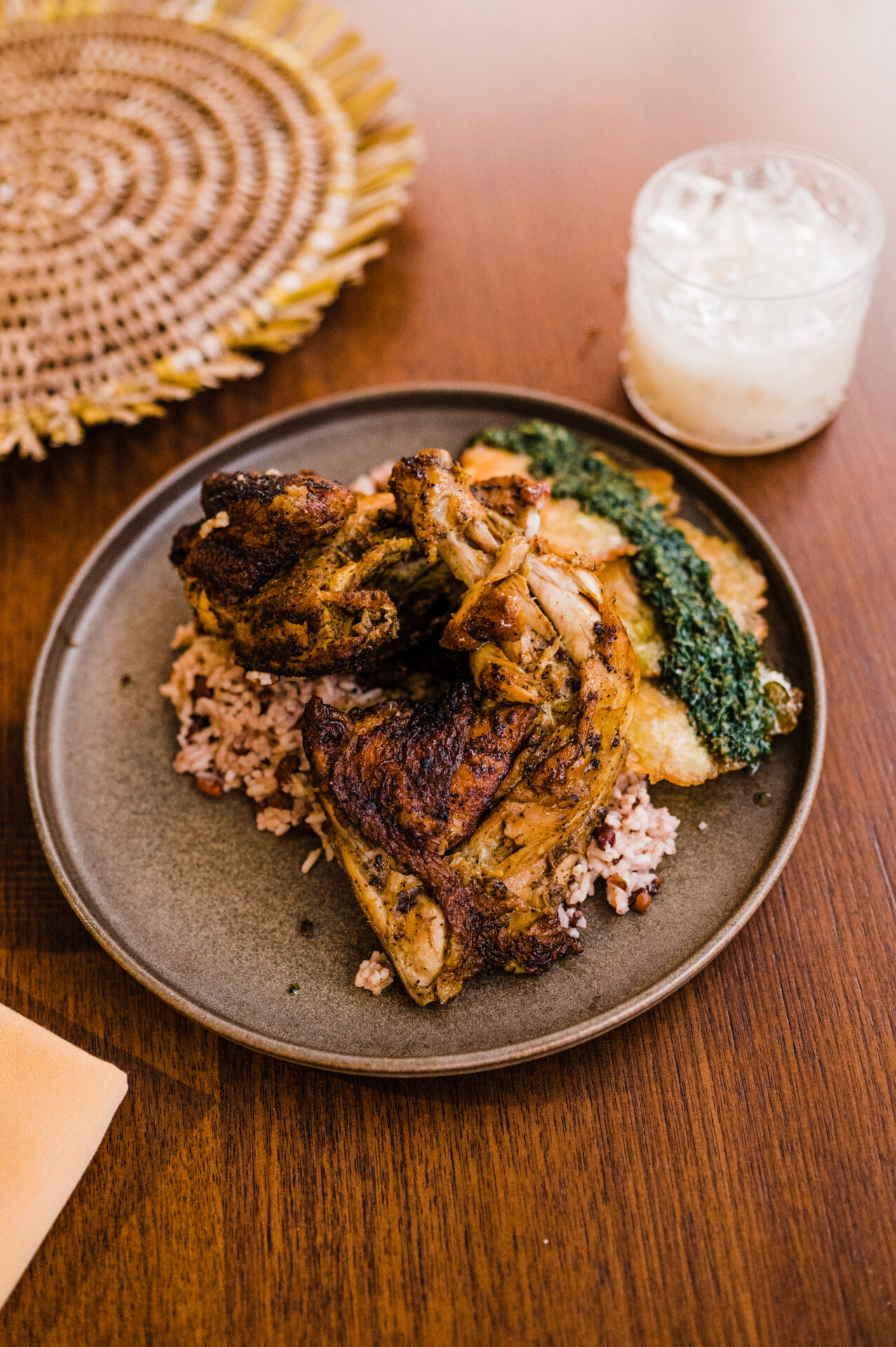
TLP: Was that the catalyst for opening a restaurant in Bluffton?
Bernard Bennett: When I was quarantining, I would do a lot of hot yoga. And in the midst of doing yoga there was a lady who I may have talked to for, like, five minutes in total. But then I get a message from her saying, hey, my friend is looking for a chef, are you interested in talking? That friend was Matt Cunningham, a developer down here in Bluffton. I called him. We talked for five hours that first time. Then we talked for two hours. He said, can I fly you down to do a tasting? I was back in Chicago by then, trying to figure out what to do. We did a tasting and we all just really vibed together.
TLP: What was the concept you pitched?
Bernard Bennett: I wanted to show my people, African Americans, that we are so much more than what the stereotypes are. So much more than fried chicken, so much more than grits. We have a deep, rich history. And I just wanted to break those stereotypes. Like, rice, you know, is very important in our history. If it hadn’t been for slavery, rice might not be in this country. And a lot of enslaved people died tilling this ground, tilling this land just to create rice. I wanted to find these nuggets, these stories, to showcase in all of the dishes that what we have done, what we do, as African Americans, is really important.
TLP: How does that play out on the menu?
Bernard Bennett: It’s about the ingredients. We had a jerk goat, which is a Caribbean dish, served with plantains. But plantains are more widely used than just the Caribbean. There’s a lot of elements like this on the menu that translate through all cultures. Because of the tragedies that have happened because of slavery, all of this mixture of food is happening. We have djon djon noodles on the menu and djon djon is a Haitian rice that turns black due to the boiling of fermented mushrooms. I take that mushroom fermentation part of it and add it to the noodles. I’m a big fan of Asian cuisine and the tie there is that around 1816, when slavery was abolished in the Caribbean, they still needed indentured servants. They turned to Asia and India and indentured servants were brought to the Caribbean. That’s how the food is mixed in in the Caribbean—now, in Jamaica, there is a large Chinese population. And you would never know it unless you did your research. But the noodles are a nod to that.
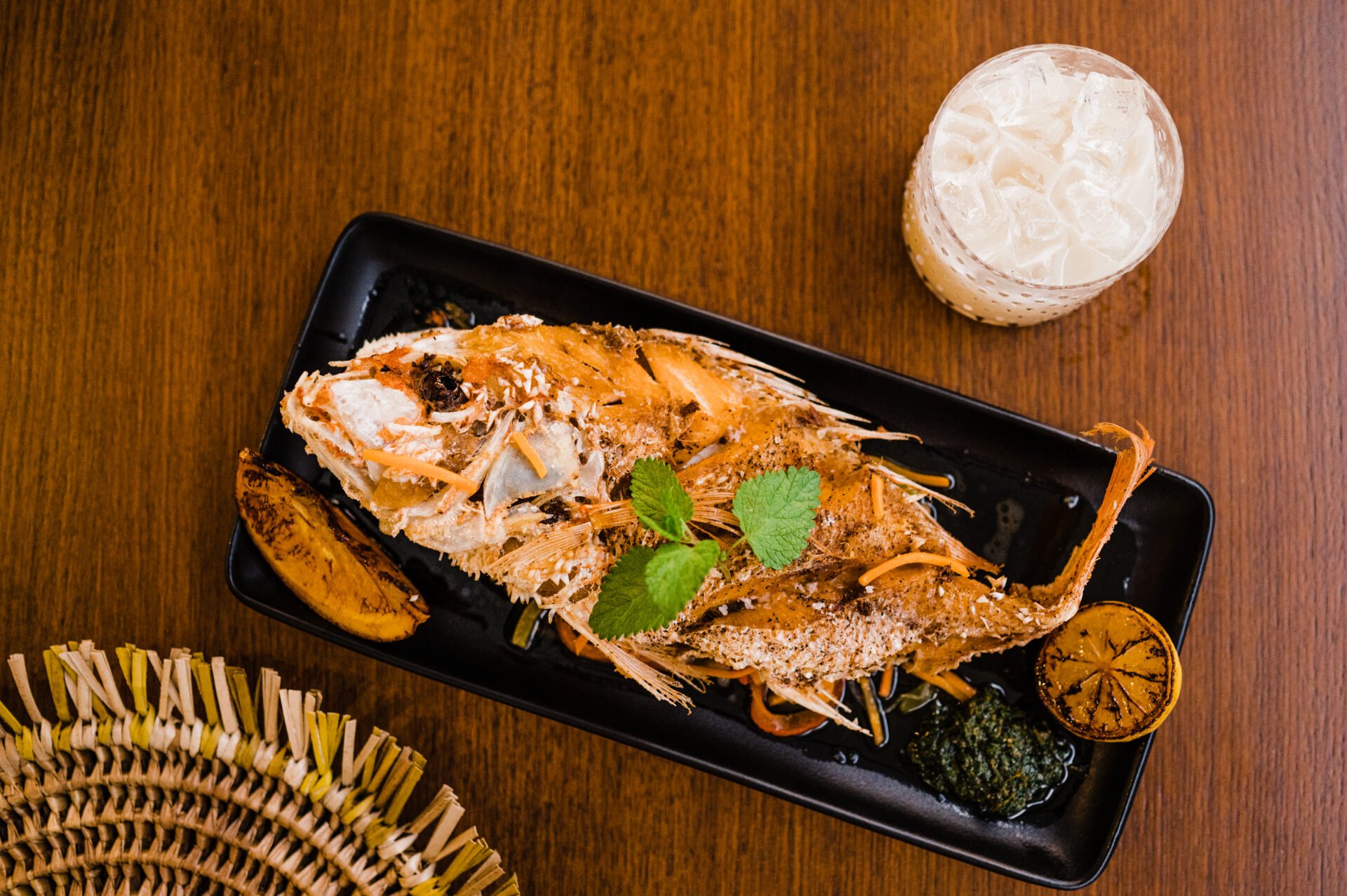
TLP: How do you get those stories across to your diners?
Bernard Bennett: We’re working on QR codes where we might share some of this through videos. But, there are going to be people who don’t want to learn anything. And that is completely fine. You’re still going to have a great meal. But through food, we are able to have these hard conversations. Often, we don’t want to reconcile with our past. But I think we can be a better country once we do that, right? And how does that get easier? It’s easier over great food. When you feel good about what you’re eating, when you have good libations and great food in front of you, you’re going to be down to be able to talk about these things and have good conversations. My opinion is that food connects us all. There are many languages and food is one of them.
TLP: What’s coming next for you and your team?
Bernard Bennett: The goal is more restaurants. The second one may go the route of the Mediterranean and North Africa. There’s a bit of the Middle East in there. There’s a lot of Mediterranean places out there, and many people know a certain style of Mediterranean food, but I think I think it could be deeper. I want to tell the same kind of story about how we moved through these places. Another restaurant might track the route down around South Arica and over to Brazil. These are all slave trade routes that I think should be highlighted and showcased.
Keep Reading
Bookshelf
A Juneteenth for the Twenty-First Century
Nicole Taylor debuts Watermelon & Red Birds in time for Juneteenth 2022 with 75 recipes and stories that honor Black traditions and celebrate future generations.
On the Road
Bluffton
Welcome to Bluffton, South Carolina, where the locals are friendly, the food is fresh, and the history is rich.
Roots
BJ Dennis: The Gullah Griot
Chef BJ Dennis honors his West African and Gullah ancestors by dismantling narratives and sharing traditions by way of food.
share
trending content
-
The Best Southern Cookbooks of the Season
-
How to Make Kolaches with Joy the Baker | Video
by Amber Chase -
Long Live Oyster Season at Darling Oyster Bar
by TLP's Partners -
Recap: TLP x Charleston Wine + Food
by TLP Editors -
Exploring Mississippi: A Quintessential Southern Experience
